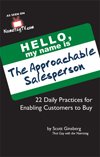
 Some people talk WAY too fast.
Some people talk WAY too fast.
(Guilty.)
But I think this happens for several reasons:
o They’re excited.
o They’re nervous.
o They’re in a rush.
o They’re emotional.
o They’re high on crack.
o They’re uncomfortable.
o They’re anxious or tense.
o They’re just the kind of person who always talks too fast.
Which is totally cool.
Sometimes, talking fast is necessary.
And sometimes, talking fast is (seemingly) uncontrollable.
However, you DO have a choice.
See, when you talk too fast, here’s what happens:
OTHER PEOPLE…
o Won’t be ABLE to chime in.
o Will have to work too hard to chime in.
o Won’t have time to process what you’re saying.
o Might not feel they have the space to think differently.
o May become intimidated or overwhelmed by your urgent and anxious speech.
AND YOU…
o May become stressed.
o Won’t breathe enough.
o Will discover that you words don’t carry as much influence.
o Won’t have the space in your own mind to process your thoughts.
o Will notice that your urgent and anxious speech may threaten or confuse people.
So, take it straight from someone who (admittedly) talks too fast too often 🙂
Here are six best practices for slowing down your speech to a more approachable pace:
1. Awareness. In spiritual practices like yoga, meditation and mindfulness, awareness is the first step to mastery. So, simply recognizing that you’ve been talking too fast is a GREAT start.
(HONESTLY) ASK YOURSELF: Are you talking too fast?
2. Breathe. Just stop. Inhale for three seconds through your nose. Hold for one second. Exhale for six seconds through your mouth.
This mindfulness exercise will lower your heart rate and help you focus on the present moment. (Thanks to my hero, Eric Maisel for this technique.)
(HONESTLY) ASK YOURSELF: Are there enough breaths between your words?
3. Reminders. Consider posting a few sticky notes on your phone, desk or computer screen to keep yourself accountable, i.e., “Slooooooow…” “Breathe” or “Pause.”
(HONESTLY) ASK YOURSELF: How will you remind yourself to slow down?
4. Ask for feedback. Simply ask your conversation partners, “Am I going to fast?” or “Are you following everything I’m saying?” These pacing questions will help keep you on track.
(HONESTLY) ASK YOURSELF: Is this person’s body language silently asking me to slow down?
5. Pause. Silence is OK! Before and after you ASK a question. Before and after you ANSWER a question. Before and after you SAY something profound.
Remember; don’t feel the need to speak just for the sake of speaking. Learn to harness the power of the pause for emphasis AND to create space in the conversation.
(HONESTLY) ASK YOURSELF: Ever had a conversation with someone who NEVER paused?
6. Monitor. Record a few of your conversations. During playback, notice when your vocal velocity increases. Notice when it decreases. Notice how your conversation partner responds.
This exercise will give you an objective look at your speech patterns.
(HONESTLY) ASK YOURSELF: Would YOU want to have a conversation with you?
LET ME ASK YA THIS…
How do you slow down your speech when you KNOW you’re talking too fast?
LET ME SUGGEST THIS…
For the list called, “17 Behaviors to Avoid for Effective Listening,” you know the drill: Send an email to me, and I’ll send you the list for free!
* * * *
Scott Ginsberg
That Guy with the Nametag
scott@hellomynameisscott.com
 Sick of selling?
Sick of selling?
Tired of cold calling?
Bored with traditional prospecting approaches?
Buy Scott’s new book and learn how to sell enable people to buy!
Pick up your copy (or a case!) right here.
